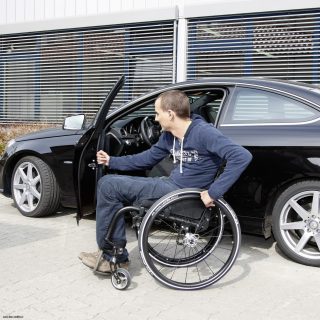Persons with locomotor disorders face restrictions in the use of tax remissions and customs facilities when importing vehicles
A group of people with locomotor disorders filed a complaint to the Council, saying that although their rights are protected by law, they could not enjoy tax remissions and customs facilities when importing vehicles for personal use.
The Council, after reviewing the circumstances of the incident, determined that the problem of discrimination against applicants was related to excessive formalities in the procedure for obtaining the necessary set of documents.
According to one of the conclusions of the Council, the name of some documents used in normative acts for obtaining benefits (certificate on disability and working capacity) differs from the document provided in the normative act on the definition of disability (certificate of employment with the degree of disability). This happens due to the changes of the government decree 357/2018 in 2018 on the definition of disability, and from 01.05.2018 a certificate of disability and working capacity are no longer issued. Thus, the lack of uniformity of documents bars persons with motor disorders, whose supporting documents are named differently (for example – certificate of viability), from those specified in the regulations. Accordingly, persons wishing to use tax remissions and customs facilities are required to undergo the medical board one more time because they do not have a certificate of employment of a new type.
At the same time, the Council noted that the request for a document confirming disability is not necessary while not all people with disabilities are entitled to these benefits, but only those who live with locomotor disorders, which can be confirmed by the conclusion about the need for transport services. The Council also mentioned that it is not necessary to provide the customs authorities with a certificate requiring the applicant to waive compensation for transport services in exchange for tax remissions and customs facilities. The Council noted that the verification of compliance with this condition is the responsibility of the territorial structure of social care according to the place of residence, not the competence of the customs authority.
The Council also noted that maintaining the mandatory submission of this set of documents to the customs authority requires additional time and effort from the person with locomotor disorders due to the complexity of excessive administrative system. Thus, the Council concluded that the identified circumstances unduly impede the ability of persons with locomotor disorders to enjoy the tax remissions and customs facilities, which they are entitled to.
The Council recommended the government of the Republic of Moldova to review the set of documents to be submitted by the applicant for tax and customs exemptions for the import of special purpose vehicles.
It should be noted that on February 15, 2019, a number of amendments to the Regulations on the application of tax and customs privileges for the import of special purpose vehicles came into force, allowing persons with locomotor disorders (regardless of the degree of disability) to use benefits for the import of cars up to 2500 cm3 without paying customs duties. The relevant amendments were also recommended by the Council through the decision issued in case 71/17 from 08.09.2017.
According to the data provided by the customs service, in the period from 01.05.2018 to 27.06.2019, 17 units of transport intended for the carriage of persons with motor disorders were placed under the customs treatment of import with the application of tax and customs privileges.
The decision can be found here.
